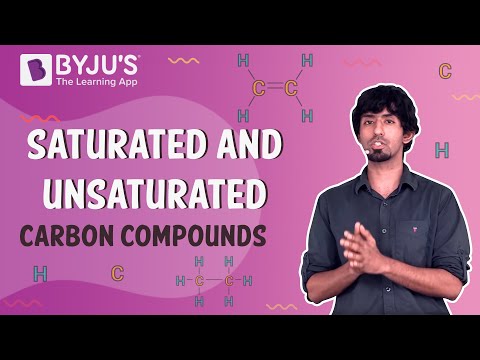Table of Contents
- What are Alkanes?
- Recommended Videos
- Physical Properties of Alkanes
- Solubility of Alkanes
- Boiling Point of Alkanes
- Melting Point of Alkanes
- Chemical Properties of Alkanes
What are Alkanes?
Alkanes are referred to as saturated hydrocarbons, that is, hydrocarbons having all carbon atoms bonded to other carbon atoms or hydrogen atoms with sigma bonds only.
As the alkanes posses weak Van Der Waals forces, the first four members, C1 to C4 are gases, C5 to C17 are liquids and those containing 18 carbon atoms or more are solids at 298 K. They are colourless and odourless.
Recommended Videos
Why Alkanes are Saturated Hydrocarbons?

Saturated & Unsaturated Compounds

Some salient physical and chemical properties of alkanes are:
Physical Properties of Alkanes
1. Structures of Alkanes
All the carbon atoms present in an alkane are sp3 hybridised that is, every carbon atom forms four sigma bonds with carbon or hydrogen atoms. General configuration of alkane is CnH2n+2. They exhibit tetrahedral geometry with a bond angle of 109.47° between them.
The methane molecule has a symmetrical tetrahedral structure.
2. Solubility of Alkanes
- Due to very little difference in electronegativity between carbon and hydrogen and the covalent nature of C-C bond or C-H bond, alkanes are generally non-polar molecules.
- As we generally observe, polar molecules are soluble in polar solvents whereas non-polar molecules are soluble in non-polar solvents. Hence, alkanes are hydrophobic in nature, that is, alkanes are insoluble in water.
- However, they are soluble in organic solvents as the energy required to overcome the existing Van Der Waals forces and the energy required to generate new Van Der Waals forces is quite comparable.
3. Boiling Point of Alkanes
As the intermolecular Van Der Waals forces increase with the increase of the molecular size or the surface area of the molecule we observe,
- The boiling point of alkanes increases with increasing molecular weight.
- The straight-chain alkanes are observed to have a higher boiling point in comparison to their structural isomers.
4. Melting Point of Alkanes
- The melting point of alkanes follows the same trend as their boiling point, that is, it increases with an increase in molecular weight.
- This is attributed to the fact that higher alkanes are solids and it’s difficult to overcome intermolecular forces of attraction between them.

It is generally observed that even-numbered alkanes have a higher trend in melting point in comparison to odd-numbered alkanes as the even-numbered alkanes pack well in the solid phase, forming a well-organised structure which is difficult to break.
Chemical Properties of Alkanes
Alkanes are the least reactive type of organic compound. Alkanes are not absolutely unreactive. Two important reactions that they undergo are combustion, which is the reaction with oxygen and halogenation, which is the reaction with halogens.
1. Combustion
A combustion reaction is a chemical reaction between a substance and oxygen that proceeds with the evolution of heat and light. Alkanes readily undergo combustion reactions when ignited. When sufficient oxygen is present to support total combustion then carbon dioxide and water are formed.
CH4 + 2O2 → CO2 + 2H2O + energy
2C6H14 + 19O2 → 12CO2 + 14H2O + energy
The exothermic nature of alkane combustion reactions explains the extensive use of alkanes as fuels. Natural gas which is used in home heating is predominantly methane.
2. Halogenation
Halogenation of an alkane produces a hydrocarbon derivative in which one or more halogen atoms have been substituted for hydrogen atoms. An example of an alkane halogenation reaction is
CH3-CH3 + Br2 → CH3-CH2-Br + HBr
Alkane halogenation is an example of a substitution reaction, a type of reaction that often occurs in organic chemistry.
A general equation for the substitution of a single halogen atom for one of the hydrogen atoms of an alkane is
R-H + X2 → R-X + H-X
Also, Read: Pyrolysis of Hydrocarbons: Alkanes
For online chemistry tuitions, download BYJU’S – The Learning App.


Comments